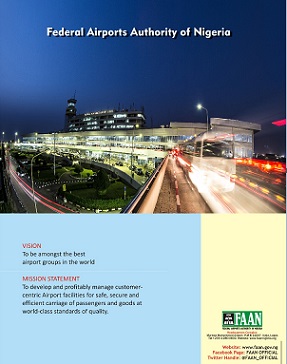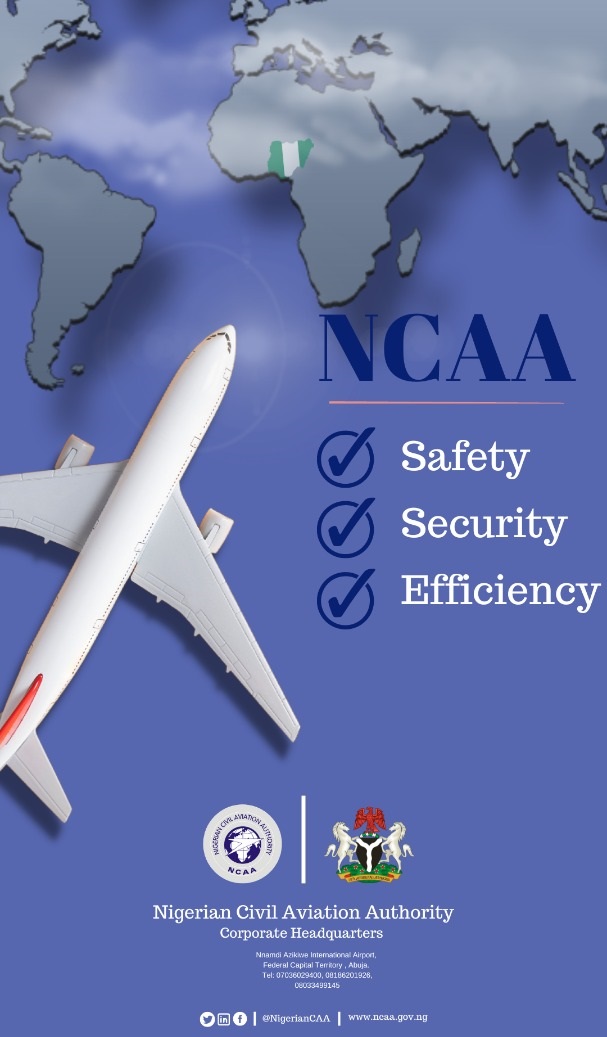
In pursuit of the efforts to make Nigeria the number Aviacargo exporting country in Africa, members of the Federal Airports Authority of Nigeria Aviacargo Roadmap Committee paid a visit to the Export Command of Nigeria Custom Service (NCS) on Friday.
The committee lead by its coordinator, Mr. Ikechi Uko met with the Custom Area Comptroller (CAC) Export Command, Mohammed Babadede, men and officers of the command at its LillyPort Apapa, Lagos Headquarters.
Speaking during the visit, Uko explained that despite the huge comparative advantages Nigeria has over many countries leading in Aviacargo Export, the country is not number one but five from the continent.
He positioned that if smaller African countries with lesser resources are doing great in Aviacargo Export, Nigeria can do better.
Noting that the leading African country in Aviacargo Export- Kenya has far below what Nigeria produces, the coordinator of the Committee however affirmed that partnership with the NCS and other stakeholders in the export chain would help in identifying and removing the challenges militating against aviacargo export in Nigeria.
“Nigeria doesn’t export much. In aviacargo Nigeria is number five, number one is Kenya, number two is Egypt, number three is South Africa, four is Ethiopia and Lagos airport is number five; despite the fact that, we are number one in population, economy and we have the largest number of travellers”.
“To get Nigeria from five to number one is not something that can be done overnigh but it is doable. We need to find out what others did. The economy of Lagos State is bigger than the economy of Kenya. The population of three states is larger than that of Kenya; The airport in Kenya is not as big as any of our airports in Nigeria; their airline is not the best in Africa. Yet why is Kenya performing better than everybody else. We found out that they have a roadmap, They have a strategic plan and they are implementing these to the letter, ” he said.
Uko explained to the Comptroller, Custom Area Command (Export) and his management team that the idea of setting up the committee is to make Nigeria aviacargo Export hub.
“So we decided to ask ourselves, why are we not number one in doing cargo export? We found out there are challenges everywhere. I organized a cargo conference called Chinet for aviacargo and FAAN decided that we should do a roadmap to find out how to make Nigeria number one, the idea is to make Nigeria a hub in cargo, even if we are importing let’s make money from both import and export,” he added.
The coordinator said, with the roadmap to be put together, the target is to grow aviacargo in the next three years and put Nigeria on the world map as the number one in aviacargo Export in Africa; which would be of benefit to FAAN, the Nigeria Customs and the economy as a whole.
“We produce a lot of things, 53 million tons of yam, Ghana produces only 8m tonnes but Nigeria doesn’t export yams, Ghana exports our yams and for a lot of things, they export on our behalf. They put it as produce of Ghana but we bring it from Nigeria and export. Why have we not been able to do that is because we have not put in place a system that will adequately take care of the things that we produce. We produce a lot of things in this country but we are not able to sell”.
The Committee leader who listed some of the identified impediments to the acceptance of Nigerian goods to include, poor packaging, the poor quality and delivery time among others, affirmed that the committee, was set up to solve these problems.
He explained that the committee drew its members from agencies and stakeholders that are involved in the export process..
Responding, the Comptroller said, when the command came on board in November 2023, there were challenges of rejection of Nigeria goods, delay and cancellation of contracts and it was mandated by the then Comptroller General of Customs (CGC) to ensure all bottlenecks and stumbling blocks were removed; which he said have achieved.
“There were challenges of cancellation of the contract, therefore; these are the issues that were outstanding.
“I was mandated by the N Comptroller General of Customs (CGC) to ensure that all bottlenecks, all stumbling blocks should be done away with; which we have done as Customs Service. Let me give you an example, you are harvesting Hibiscus flowers from Kano, it will get to Lagos within five days but from Ogere to get to Apapa or Tincan, it will take 35 or 40 days. By then, this produce would have gotten spoilt by the time it gets to its destination, it will be rejected. What we did was, we came, we invited all the relevant agencies, and gave them an office an office to do a joint examination once. These places are designed to be pre-gated for the containers that were examined, treated and released and can access the mother port within 24 hours. Therefore, the voyage can sail within that time, therefore rejection was tackled and minimized. Exporters who came here to testify, thanked us for what we have done. That is a very good achievement.
“Another thing we handled is to ensure that there is no interference. When we release a consignment bo DSS or NAFDAC stops the consignment to the mother port on the road. Once it is done and treated, it means that it will be ready to go.
“These are some of our strategic plans for us to promote the business of export out of Nigeria.
“Another thing is contract cancellation. You know that exports are mostly Free On Board (FOBs), therefore, it is the uptaker that handles the freight. We ensure timely delivery of boxes to the mother port so this contract cancellation should be a thing of the past.
The Comptroller however mentioned export sector faces some challenges which hang around the exporters which lead to rejection or cancellation of their contracts overseas. He identified some of the challenges to include non compliance with regulations, corruption among forwarders,packaging etc.
“But there are challenges that we will own up to. The challenges as you know, at times, obeying the regulation is another thing. We will keep on engaging the exporters especially the agents to follow the due process.
These are some of the issues we are having with forwarders, teaching them, and enlightening them. They should not be looking at cutting the corner on produce. Let it be subjected to these tests so that certificates will be issued to them. Another is the issue of yam, some of the yam exporters do come and they do export but not in large quantities. Let them do packaging with yam so that by the time they take it, nobody will reject it. You can’t just take yam like the way they are sold at Mile 12 Market. Package it. If you package it, ensure it conforms with the standard. It is good that way and then sell it,” he revealed.
Comptroller Babadede however said that despite the challenges the command was able to make a difference within the first quarter of 2023.
“We are able to make a difference. We treated cargo worth over $200 million. In fact, this is from the CBN. This quarter, Nigeria was able to repatriate $1.7 billion; the first in 42 years. These are some of the remarkable achievements of our men and officers. That is why we are here and I am assuring you that a container of export, once it is treated and once the voyage is there, can be loaded within 24 hours. The issue of delay, rejection, and contract cancellation is now a thing of the past. We have handled that. We keep telling the agents to promote the business of export,” he said boldly









